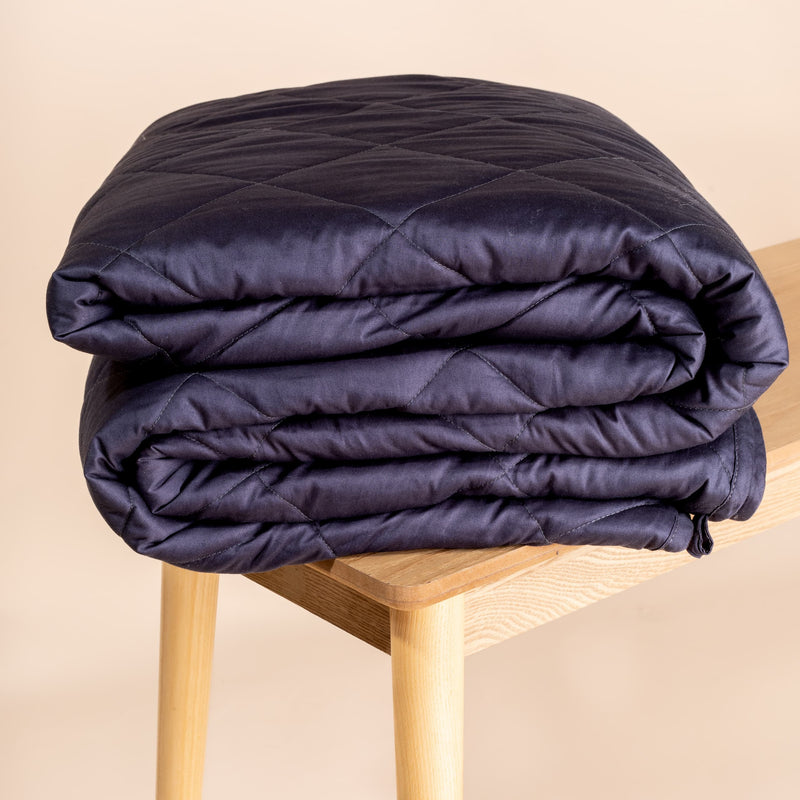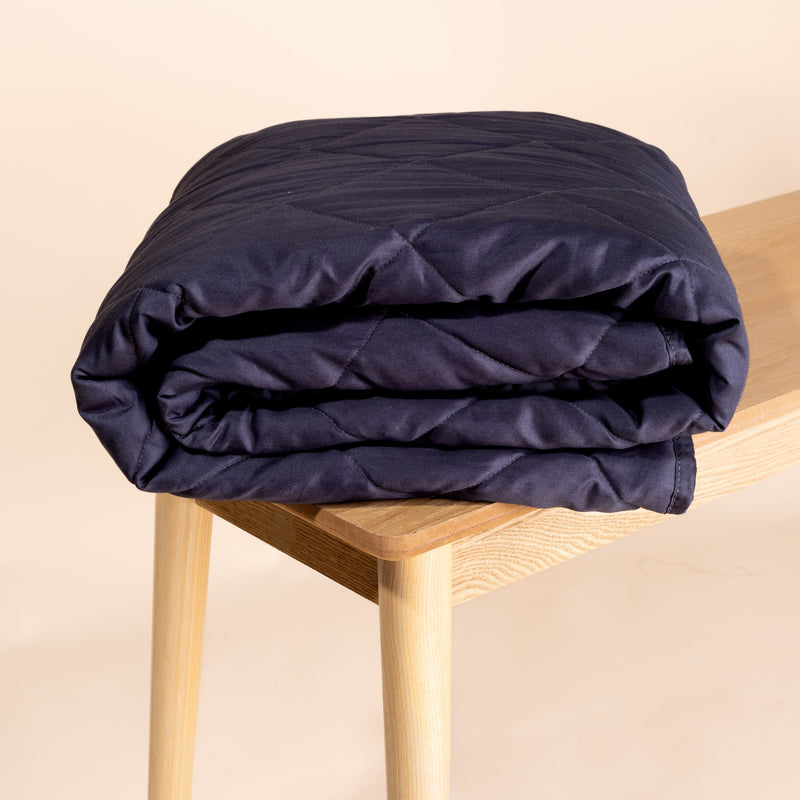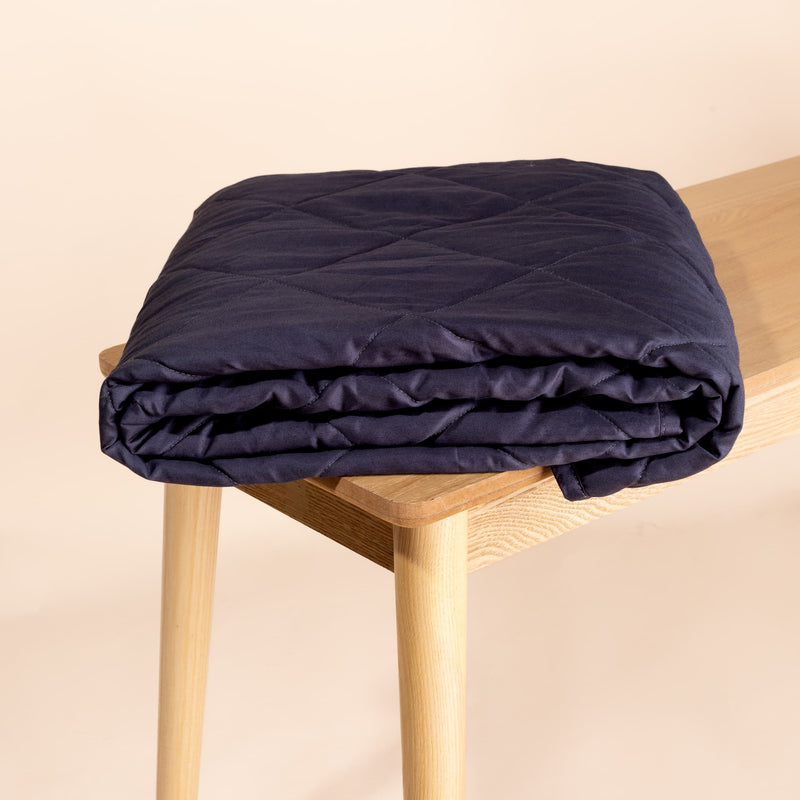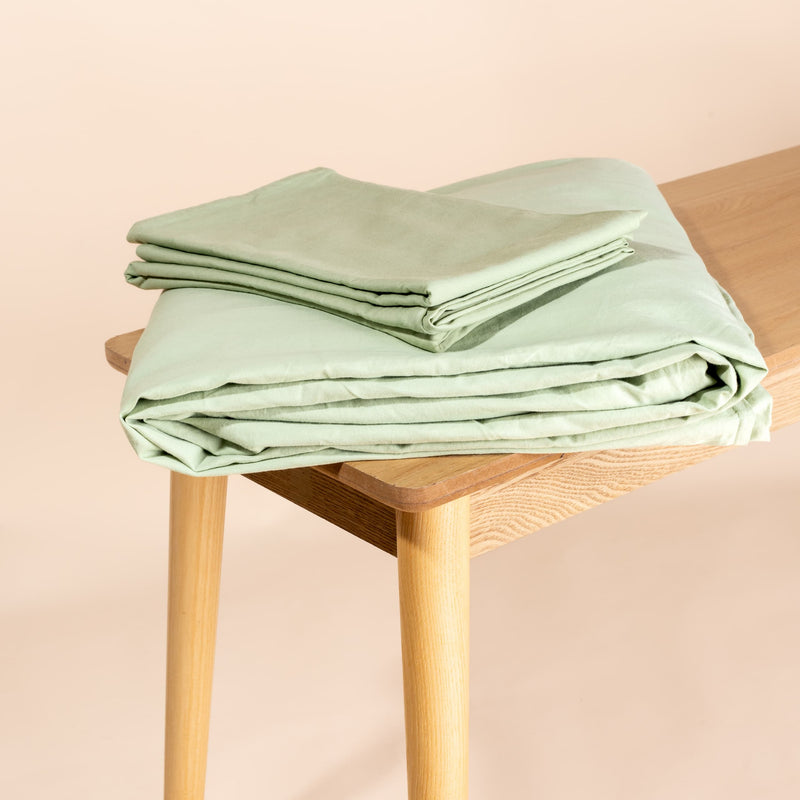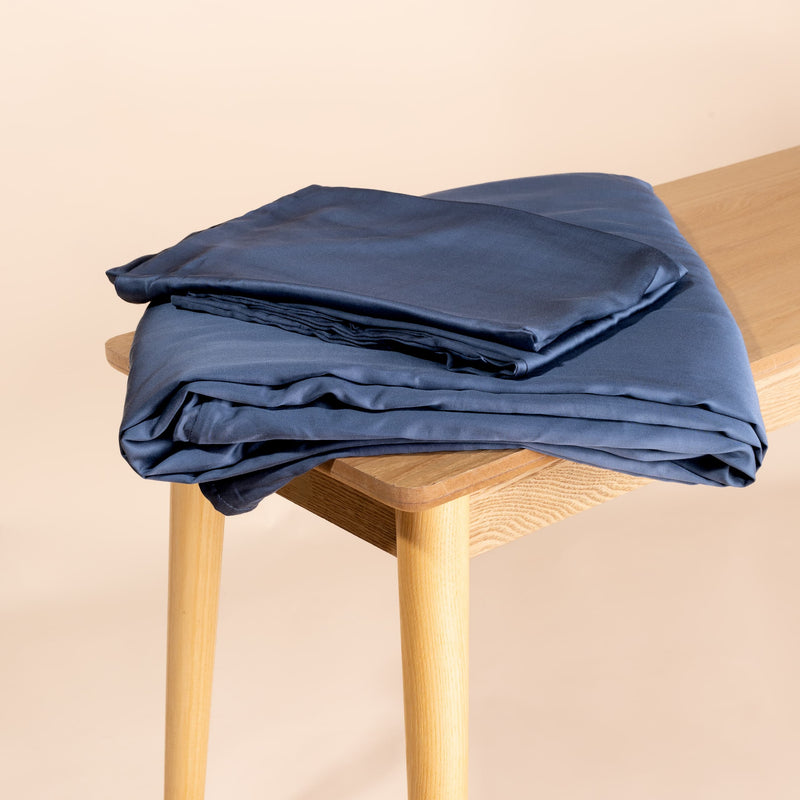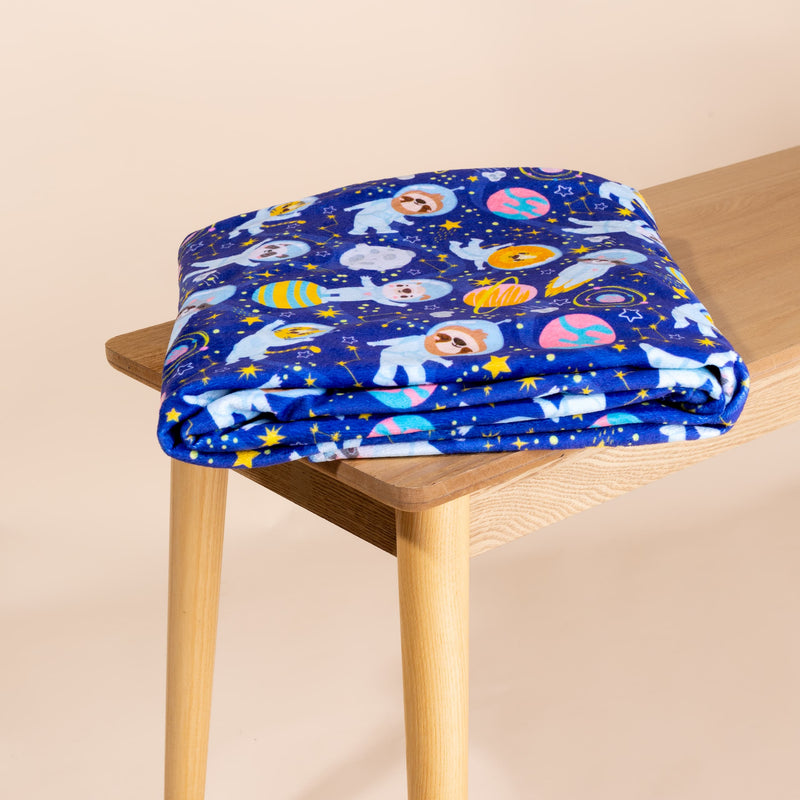The weighted blanket is suitable for all children who have difficulty falling asleep, staying asleep, or sleeping in general. A weighted blanket can be used by any child to get a better night's rest. In addition, the weighted blanket is widely used by children with sleep problems, trauma, ADHD, sensory processing issues, high sensitivity, and autism. They will benefit the most from it.
Children with general sleep problems
Is your child sleeping poorly? Then a weighted blanket can help. By using it, your child breathes more calmly and sleeps more deeply.
Children with ADHD, SPD, and autism spectrum disorders
Weighted blankets for children are a tool often used and recommended by occupational therapists for children with ADHD, Sensory Processing Disorder (SPD), and autism spectrum disorders to help calm down.
The extra weight of these blankets provides so-called proprioceptive input to the brain, which has a calming effect on their nervous system.
Children with sensory processing issues and high sensitivity
Children with sensory processing issues and highly sensitive children also benefit from using a weighted blanket. Especially after a busy day, it is very difficult to cope with stimuli. Due to overstimulation, children become tired and lose concentration.
Good sleep helps children process these stimuli. Deep Pressure Stimulation encourages children to sleep better. This form of therapy has a calming effect on body and mind, allowing your child to sleep better.
Children with autism
Many children with autism spectrum disorder (ASD) struggle with sensory issues. In addition, they often have sleep problems. Due to the Deep Pressure Stimulation of a weighted blanket, the body produces serotonin. Serotonin is an important chemical in the brain when it comes to feeling calm and having a stable mood. Children with autism often have low serotonin.
How old should my child be to use a weighted blanket?
Our lightest blanket is suitable for children from 18 kg. For babies and toddlers, we advise against using a weighted blanket, as the blanket is then too heavy.




